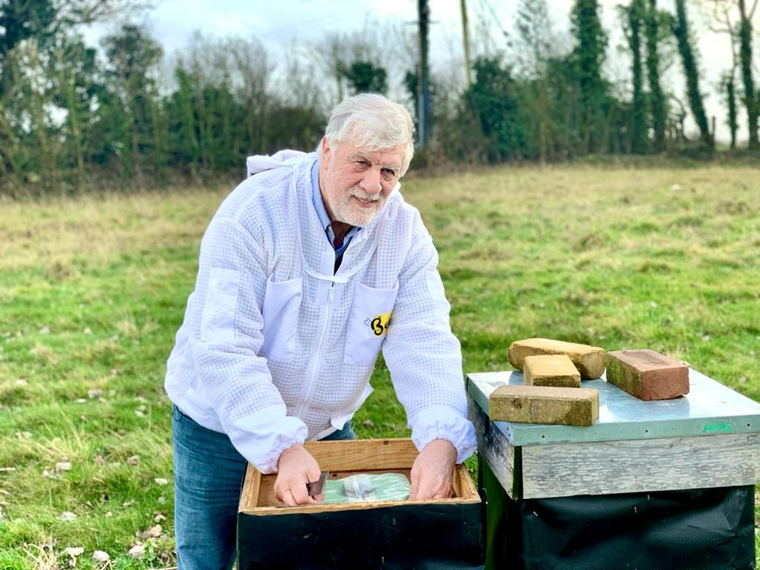Patrick Murfet, managing director at Bee Equipment, wants to bring the Italian bees in from Italy via a new headquarters he is opening in Northern Ireland, but said that while the Northern Ireland Protocol says that should be allowed, officials have told him he won’t be allowed to do so.
An email from the Scottish Government, which is involved because Mr Murfet is considering importing the bees through Stranraer, has threatened to turn back the shipment or destroy the creatures – and prosecute Mr Murfet into the bargain.
In response, Mr Murfet has demanded to know why DEFRA officials have decided that importing bees from Northern Ireland is against the new rules on trade between the UK and the EU.
“DEFRA have unilaterally decided that Northern Ireland is not in the UK,” he told South East Farmer. “I have asked them what legislation they are relying on for that decision at least three times, but no-one has been able to answer the question. All they have said is that they are aware of the issue.
“My position is clear: Show me the law and I will apply for a judicial review. Until then I am still planning to import my bees in April, and I call on DEFRA to get this situation clarified before then.”
As well as hiring out bees to do their valuable pollinating work across the South East, Bee Equipment sells bees and related items throughout the whole of the UK, including Northern Ireland. Because he is now unable to export into Northern Ireland, he opened a new branch in the country on 1 March.
“It sounds drastic, but these are drastic times. I have already lost a lot of revenue from lost trade with Northern Ireland as well as facing the costs of having goods returned at the border,” he explained.
“Since the UK left the EU, importing bees from Europe – apart from queen bees – has been banned, but I can see no legal reason why I can’t ship them from my facility in Northern Ireland to this country. DEFRA, though, seems to think differently, although they won’t tell me why.”
Mr Murfet has already paid a £20,000 deposit for the first of three batches of bees from Italy, where the warmer climate leads to stronger genetics and helps boost the number of early-awakening pollinators. He estimates that the row could cost his company £300,000, half of that in lost business and the rest reflecting the cost of the bees that are under threat.
“I had to order the bees back in March 2020, well before the Brexit deal was reached,” he said. “The Government spent a year working this out. It’s not for some clown in DEFRA, sitting in an office, to make this decision.”
He went on: “They spent longer working on the situation regarding Northern Ireland than on any other part of the deal, and they still haven’t got it right. It’s a real dog’s dinner.”
Apart from the effect on his business, Mr Murfet is concerned at the impact on farms and on crops without the imported bees. “We desperately need bees to pollinate our crops and top fruit,” he stressed. “Even oilseed rape benefits from bees. If our own crops produce less, then the lost yields will need to be made up with imported fruit and veg, and that can’t be good for a country that’s supposed to be newly independent.
“We imported £86m worth of honey last year, from as far afield as Asia and China, and that’s just crazy. DEFRA needs to sort this issue out, and quickly. I will abide by the legislation, although I will take it to a judicial review, but so far no-one has been able to tell me what the legislation is.”
DEFRA has said it is aware of the issue, is looking for a solution and will provide guidance to bee importers and beekeepers as soon as possible.




